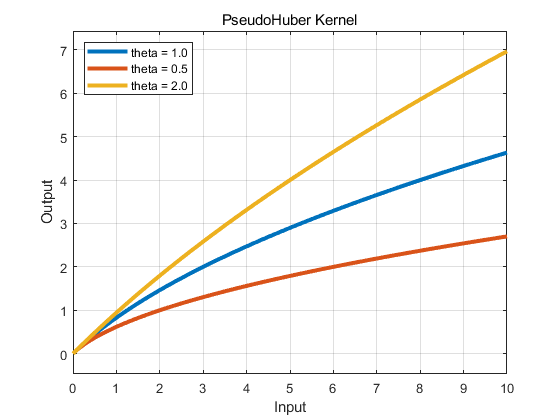pypose.optim.kernel.PseudoHuber¶
- class pypose.optim.kernel.PseudoHuber(delta=1.0)[source]¶
The robust pseudo Huber kernel cost function.
\[\bm{y}_i = 2\delta^2 \left(\sqrt{1 + \bm{x}_i/\delta^2} - 1\right), \]where \(\delta\) (delta) defines the steepness of the slope, \(\bm{x}\) and \(\bm{y}\) are the input and output tensors, respectively. It can be used as a smooth version of
Huber.- Parameters
delta (float, optional) – Specify the slope. The value must be positive. Default: 1.0
Note
The input has to be a non-negative tensor and the output tensor has the same shape with the input.
Example
>>> import pypose.optim.kernel as ppok >>> kernel = ppok.PseudoHuber() >>> input = torch.tensor([0, 0.5, 1, 2, 3]) >>> kernel(input) tensor([0.0000, 0.4495, 0.8284, 1.4641, 2.0000])

